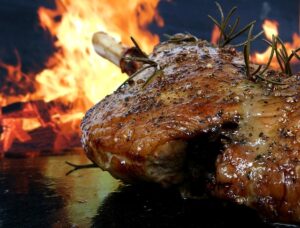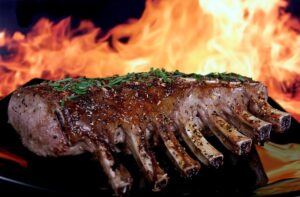Introduction
Meatloaf is a popular dish enjoyed by many, but have you ever wondered how much protein is in a serving? Protein is an essential nutrient that plays a crucial role in building and repairing tissues, supporting immune function, and providing energy. In this article, we will dive deeper into the topic of how much protein is in meatloaf and explore the factors that can affect its protein content.
Protein Content in Meatloaf
Meatloaf is typically made with ground meat, such as beef, pork, or a combination of both. The protein content in meatloaf primarily comes from the meat used. On average, a serving of meatloaf (approximately 3 ounces or 85 grams) contains around 15-20 grams of protein. However, the exact protein content can vary depending on several factors.
1. Type of Meat: The type of meat used in meatloaf can significantly impact its protein content. Different meats have varying protein levels. For example, beef generally has a higher protein content compared to pork or poultry. Therefore, meatloaf made with beef may have a slightly higher protein content than those made with other meats.
2. Lean vs. Fatty Meat: The fat content in meat can also affect the protein content. Lean meats, such as ground sirloin or lean ground beef, have a higher proportion of protein compared to fatty cuts. Choosing leaner cuts of meat for your meatloaf can increase its protein content.
3. Additives and Fillers: Some meatloaf recipes may include additives or fillers, such as breadcrumbs, eggs, or vegetables. While these ingredients can enhance the flavor and texture of the meatloaf, they may dilute the overall protein content. It’s important to consider the additional ingredients used when estimating the protein content of meatloaf.
Other Nutritional Benefits of Meatloaf
In addition to protein, meatloaf provides several other essential nutrients. Here are some key nutrients commonly found in meatloaf:
1. Vitamins and Minerals: Meatloaf made with high-quality meats can be a good source of various vitamins and minerals. These may include iron, zinc, vitamin B12, and vitamin D, among others. These nutrients play vital roles in maintaining overall health and well-being.
2. Healthy Fats: While meatloaf can contain some fat, choosing lean cuts of meat and draining excess fat can help reduce the overall fat content. Including healthy fats, such as those found in olive oil or avocado, can provide beneficial monounsaturated fats.
3. Fiber and Antioxidants: If your meatloaf recipe includes vegetables or whole grains, it can contribute to the fiber and antioxidant content of the dish. These components are essential for digestive health and overall disease prevention.
Conclusion
Meatloaf can be a good source of protein, with an average serving containing around 15-20 grams. The protein content can vary depending on factors such as the type of meat used, the fat content, and the inclusion of additives or fillers. Additionally, meatloaf offers other essential nutrients like vitamins, minerals, healthy fats, fiber, and antioxidants. It’s important to consider these factors when assessing the nutritional value of meatloaf.
References
– Mayo Clinic: https://www.mayoclinic.org/
– USDA FoodData Central: https://fdc.nal.usda.gov/













